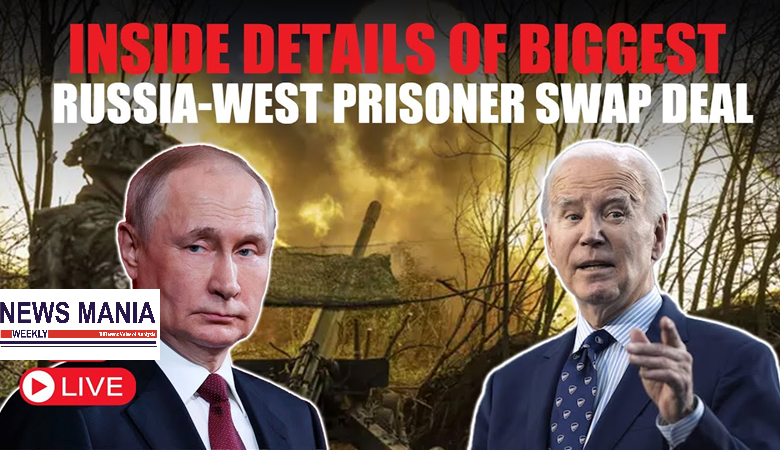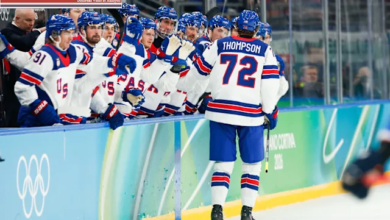Historic US-Russia Prisoner Exchange: A Glimpse into the Largest Swap Since the Cold War

News Mania Desk/Agnibeena Ghosh/2nd August 2024
In a dramatic turn of events, a historic prisoner exchange between the United States and Russia has unfolded, marking the most significant swap between the two nations since the Cold War era. This unprecedented deal, involving a total of 24 individuals, includes high-profile figures such as Wall Street Journal reporter Evan Gershkovich, former US Marine Paul Whelan, and Russian-American journalist Alsu Kurmasheva, who were released from Russian custody. The exchange also included notable figures like Vladimir Kara-Murza, a Kremlin critic and Pulitzer Prize-winning writer serving a 25-year sentence on politically charged treason charges.
The release of these individuals came after months of intense negotiations and required concessions from European countries. The deal was finalized despite the strained relations between Washington and Moscow, which have been at a low point for decades. The exchanged individuals include a diverse mix of journalists, political dissidents, suspected spies, a computer hacker, a fraudster, and a man convicted of murder, showcasing the complex nature of international diplomacy.
Upon their return to the United States, Gershkovich, Whelan, and Kurmasheva were met with emotional reunions at Joint Base Andrews in Maryland. President Joe Biden and Vice President Kamala Harris were on hand to welcome them back, emphasizing the significance of the moment. The emotional reception underscored the personal and political stakes involved in such high-profile exchanges.
The deal saw Russia releasing 16 individuals, including Gershkovich and Whelan, who were facing severe prison sentences under Russia’s controversial legal system on espionage charges deemed baseless by the US. Kurmasheva, also released, had been convicted of disseminating false information about the Russian military. The US and its allies, in turn, returned Russian criminals who had been convicted of significant crimes, such as Vadim Krasikov, sentenced to life imprisonment for the murder of a Georgian asylum seeker in Germany, a crime attributed to Russian orders.
Despite the gravity of this exchange, it is unlikely to ease the broader geopolitical tensions between the US and Russia. Previous prisoner swaps have not led to lasting improvements in relations, and the ongoing conflict in Ukraine, with Russian President Vladimir Putin’s refusal to halt hostilities and US military aid to Kyiv, continues to exacerbate tensions. The prisoner exchange, while a rare moment of compromise, does not resolve the underlying disputes that have strained US-Russia relations.
Notably, the deal did not include several Americans who remain imprisoned, such as Travis Leake, convicted on drug charges; Gordon Black, a soldier convicted of theft and threats; Marc Fogel, a teacher sentenced for drug-related offenses; and Ksenia Khavana, accused of treason for allegedly supporting Ukraine’s military. These omissions highlight the complex nature of international negotiations and the difficult decisions faced by policymakers in such high-stakes exchanges.
In summary, the recent US-Russia prisoner exchange represents a significant event in the realm of international diplomacy. It reflects the ongoing challenges and intricate negotiations involved in such deals, offering a glimpse into the broader dynamics at play between two of the world’s most powerful nations. While it may not alter the overarching geopolitical landscape, it serves as a reminder of the personal impact and diplomatic efforts that continue to shape global relations.






